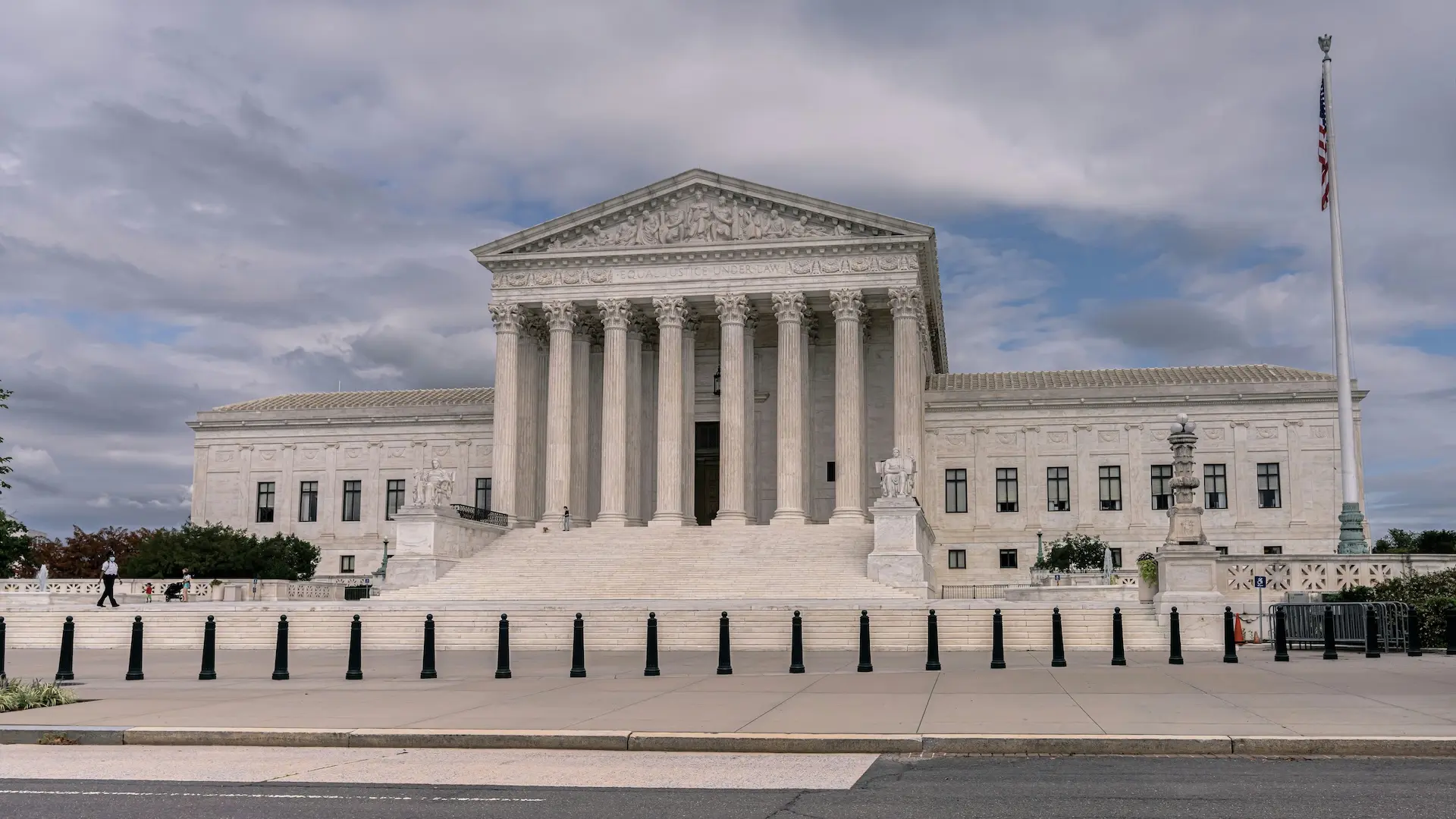Featured
Produced through a partnership between Canopy Forum, the Indigenous Values Initiative (IVI), and Syracuse University

Produced through a partnership between Canopy Forum, the Indigenous Values Initiative (IVI), and Syracuse University, this series of essays brings together religion scholars, legal scholars, and Indigenous activists to explore the problematic legacy of Johnson v. M’Intosh (1823) and the 15th century Doctrine of (Christian) Discovery – a legal and religious rationale by which European powers claimed the right to discover and claim lands inhabited by non-Christian peoples.
Published: 27 January 2026
INTRODUCTION #
Produced through a partnership between Canopy Forum, the Indigenous Values Initiative (IVI), and Syracuse University, this series of essays brings together religion scholars, legal scholars, and Indigenous activists to explore the problematic legacy of Johnson v. M’Intosh (1823) and the 15th century Doctrine of (Christian) Discovery – a legal and religious rationale by which European powers claimed the right to discover and claim lands inhabited by non-Christian peoples. Focusing primarily on the 19th through the 21st centuries, these essays illustrate how Johnson and the Doctrine of Christian Discovery have global import to Turtle Island (especially the United States and Canada) and Aotearoa (New Zealand).
About #
Grounding this conversation in the Two Row Wampum method, the editors of this series have worked to include both Indigenous and non-Indigenous voices so we can journey side by side without violating the waters down the river of life. We recognize the urgency and need for more inclusion of indigenous voices to reaffirm our proper relationship with the natural world in the staid disciplines of religion, law, history, anthropology, and cultural studies. We hope this series inspires generative conversations around Johnson and the Doctrine of Christian Discovery.
Articles

Part 15 of Steven T. Newcomb's Domination Translator Series examining the Doctrine of Discovery in U.S. Supreme Court cases. U.S. v. King Mountain Tobacco (2012) asserted federal excise tax authority over Yakama Nation based on plenary power doctrine.
![]() Steven T. Newcomb
Steven T. Newcomb
McGirt v. Oklahoma (U.S. Supreme Court, July 2020) - Domination Translator Series - Part 14

Part 14 of Steven T. Newcomb's Domination Translator Series examining the Doctrine of Discovery in U.S. Supreme Court cases. McGirt v. Oklahoma (2020) upheld Creek Nation jurisdiction while affirming federal plenary power based on the Doctrine of Discovery.
![]() Steven T. Newcomb
Steven T. Newcomb

Part 13 of Steven T. Newcomb's Domination Translator Series examining the Doctrine of Discovery in U.S. Supreme Court cases. Onondaga Nation's lawsuit to recover ancestral lands was dismissed using federal Indian law doctrines based on discovery and domination.
![]() Steven T. Newcomb
Steven T. Newcomb

Part 12 of Steven T. Newcomb's Domination Translator Series examining the Doctrine of Discovery in U.S. Supreme Court cases. Oneida Indian Nation v. County of Oneida (2010) examined equitable defenses used to bar Native land claims spanning centuries.
![]() Steven T. Newcomb
Steven T. Newcomb

Part 11 of Steven T. Newcomb's Domination Translator Series examining the Doctrine of Discovery in U.S. Supreme Court cases. Cayuga Nation v. Pataki (2005) explored Haudenosaunee land claims and the suppressed 1922 Everett Report on Native treaty rights.
![]() Steven T. Newcomb
Steven T. Newcomb
White v. University of California (9th Cir., 2014) - Domination Translator Series - Part 10

Part 10 of Steven T. Newcomb's Domination Translator Series examining the Doctrine of Discovery in U.S. Supreme Court cases. UC professors attempted to prevent repatriation of Kumeyaay Nation ancestral remains, invoking tribal sovereignty immunity doctrines.
![]() Steven T. Newcomb
Steven T. Newcomb
Tee Hit Ton Indians v. United States (1955) - Domination Translator Series - Part 9

Part 09 of Steven T. Newcomb's Domination Translator Series examining the Doctrine of Discovery in U.S. Supreme Court cases. Tee Hit Ton v. U.S. (1955) denied Native peoples compensation for lands taken by the U.S. government under the Doctrine of Discovery.
![]() Steven T. Newcomb
Steven T. Newcomb
President 'Teddy' Roosevelt's Monroe Doctrine Corollary - Domination Translator Series - Part 8

Part 08 of Steven T. Newcomb's Domination Translator Series examining the Doctrine of Discovery in U.S. Supreme Court cases. Teddy Roosevelt's 1904 Monroe Doctrine Corollary asserted U.S. imperial dominion over the Western Hemisphere and its indigenous peoples.
![]() Steven T. Newcomb
Steven T. Newcomb
Martin v. Waddell (1842) - Domination Translator Series - Part 7

Part 07 of Steven T. Newcomb's Domination Translator Series examining the Doctrine of Discovery in U.S. Supreme Court cases. Martin v. Waddell (1842) applied the Doctrine of Discovery to oyster beds, asserting European discovery gave absolute property rights.
![]() Steven T. Newcomb
Steven T. Newcomb
The Monroe Doctrine (1823) - Domination Translator Series - Part 6

Part 06 of Steven T. Newcomb's Domination Translator Series examining the Doctrine of Discovery in U.S. Supreme Court cases. The Monroe Doctrine (1823) extended U.S. claims of 'ultimate dominion' over the Western Hemisphere, following the Doctrine of Discovery.
![]() Steven T. Newcomb
Steven T. Newcomb
On this Page
Information

